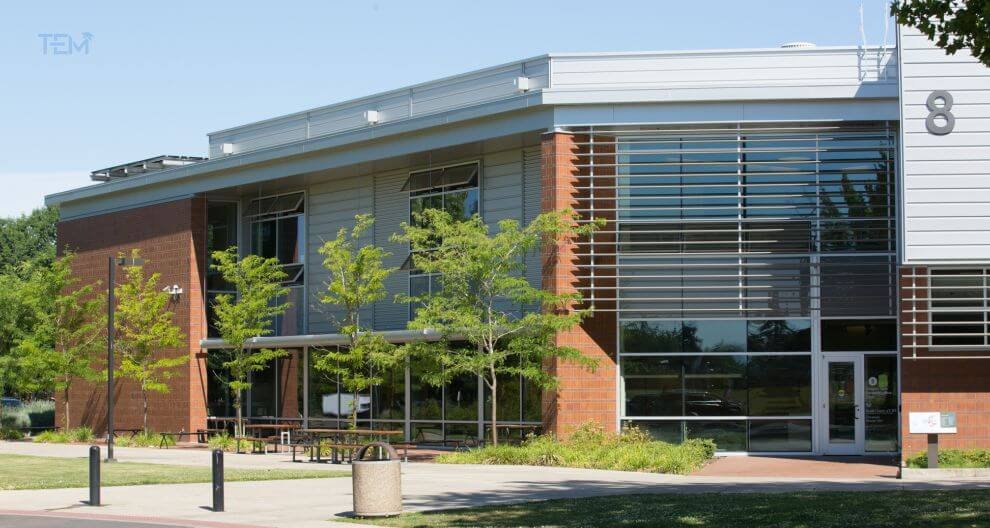The healthcare industry is the backbone of every country irrespective of its demographic and geographic factors. Over the years, it has evolved as one of the fastest and largest growing industries. The unannounced crisis of COVID-19 has raised concerns in the healthcare industry with the new challenge of increases in the number of patients globally. While many healthcare workers are at the forefront of the pandemic, the concerns related to management, such as the number of beds, patients, medicines, and the requirement for the latest equipment, are also increasing. Hence, there is a high demand for good management in the healthcare industry.
Established in 1969, Chemeketa Community College is meeting this demand by offering degrees and certificates that can be completed in a relatively short amount of time. When its local industry was in desperate need of medical assistants, the College began offering a Medical Assisting certificate. Medical assistants provide a wide range of roles interacting with patients and assisting healthcare professionals by taking medical histories and checking vital signs. The tenure of the program is nine months—a great program for individuals who are looking for an entry-level job in the medical field. Another notable feature of this program is that it is guided by industry leaders and has a strong reputation for producing outstanding, qualified candidates.
Creating New Opportunities
The management of Chemeketa Community College knows that healthcare is a noble profession—it is a field that each day makes a difference in the lives of many people. It provides those who choose this field with the opportunity to make a significant impact in the lives of the individuals served and the community at large. This is why the College builds curriculum and degrees in healthcare management that prepare students for working in the industry, including health data management, research, and applied healthcare. These programs help students explore, understand, and develop skills for the many opportunities that exist in the healthcare field.
If you are considering a future in the healthcare industry and want to make a difference in the lives of people who face serious healthcare challenges, Chemeketa’s Hemodialysis Technician program is for you. End state disease, renal disease, or end-stage kidney disease are terms that describe the point where kidney function is no longer able to sustain life. As a hemodialysis technician, and under the guidance of a nurse or physician, you will closely work with patients with diminished kidney function. Technicians operate the machines which filter and clean patients’ blood waste. The nine-month program focuses on technical aspects of the work that is applied in the student’s clinical rotation and when fully employed in this profession.
The program offers a fast track to an unfamiliar medical career. The program immerses the student quickly into the clinical workplace. The first term at Chemeketa gives a student an intense program filled with medical information and practical experience focusing on one aspect of the trade, hemodialysis. The second term is clinical rotation within actual hemodialysis facilities, with patients and staff. The hands-on experience reinforces learned theory.
Interprofessional Collaboration
Chemeketa’s Dental Assisting program prepares graduates to sit for their national certified dental assistant exam. The program is accredited by the American Dental Association Commission on Accreditation and is partnered with the Oregon Institute of Technology (OIT) to provide a bachelor’s degree option in Dental Hygiene. The Chemeketa Dental Assisting program started in 1962. It is a nine-month, accredited program that prepares students for employment as a dental assistant. One of the Chemeketa Dental Assisting department’s goals is to provide a platform for interprofessional collaboration. Chemeketa collaborates with other colleges, including OIT and Oregon Health Sciences University (OHSU). Dental Assisting students assist the hygiene students of Oregon Tech and the predoctoral students of OHSU. This provides a great stepping stone before the student’s practicum experience in a dental office.
Adhering to the New Norms
Due to the pandemic, many jobs are now providing opportunities to work remotely, including health information management (HIM) careers. Chemeketa offers an Associate of Applied Science (AAS) degree in HIM. This degree specializes in the management of the medical record component, which includes coding to get the best insurance reimbursements, budget and financing around different medical procedures, data gathering regarding mortality and morbidity rates in the community, and cancer registry.
Another impact of COVID-19 is observed in online education. There has been a sudden global spike in the number of online programs offered by various colleges and universities. The Health Information Management program offered by Chemeketa is fully online, except for a few general education prerequisite courses. Currently, Chemeketa is the only campus in Oregon that offers this program.
Understanding the Students’ Needs
One of Chemeketa’s values is collaboration. All of the programs collaborate with industry partners to ensure purposeful, effective programs, and services that support all students. The College welcomes diverse perspectives and encourages the free exchange of ideas. Students are matched with industry partners to enhance their learning experience and develop connections to their field of choice. Innovation is a priority at Chemeketa, which intentionally designs quality instruction, programs, and services to prepare students to meet the changing needs of a community in a global society. Students are encouraged to think outside of the box and seek out new techniques and technologies that are up and coming in their field.
Chemeketa’s faculty is one of the primary factors that lead to quality education. For many students, instructors become the guiding light in nurturing goals and aspirations. An experienced faculty not only helps students but also increases their confidence in the College. The faculty at Chemeketa are extremely talented, compassionate, and create a rigorous and engaging class experience. This elevates the quality of talent that comes out of their programs. Another vital step in students’ lives after college is placement. Chemeketa graduates have the skills they need to hit the ground running in a new position, which saves employers a lot of time and money in training. Moreover, the College promotes its old tradition of high standards and values in management and leadership. These are traits that give students an extra edge, which is appreciated by many employers.
Encouraging Healthy Behaviours
All of the Health Sciences programs offered at Chemeketa are part of the service-earning professions. Students choose a Health Sciences career because they want to help people in their most vulnerable state of being. Chemeketa’s programs promote these core values—privacy, security, confidentiality, following legal policies and procedures, and ensuring ethics, all of which are required in healthcare professions. Moreover, Chemeketa encourages healthy behaviors for students modeled by faculty and staff. Faculty focus on students’ mental and physical health to ensure students have the personal tools needed to be successful. Chemeketa offers mental health services as well as provides food pantry services around the district to help students who lack the resources needed to purchase healthy meals. Student engagement plays a crucial role in healthy campus behavior, and at Chemeketa, students are encouraged to participate in College health initiatives, community outreach, and student clubs.
Tackling the Pandemic
Although the pandemic has caused a disruption to life, Chemeketa has very talented and innovative faculty who are overcoming the challenges created by the pandemic. New methods developed for providing instruction will forever change the way the College operates as an educational institution and will help it continue to serve students better. Though the pandemic has not affected the HIM program, it has provided an opportunity to refine best practices for remote or online instruction. Though the last term was challenging, students still have the opportunity to engage in clinical experiences while gaining theoretical knowledge.
Another positive consequence of the pandemic is that clinical rotations helped students transition directly into employment, especially in dialysis clinics that were in need of additional staff. Managers of these clinics were pleased with Chemeketa students and hired them because of their advanced dialysis knowledge. This made their mandatory orientation and training easier. Speech-language pathology has also evolved as a result of the pandemic. Services are moving to teletherapy more extensively than before the pandemic. There is a great concern for patients and clients and an agile shift in the profession is needed to meet the needs of clients and families through a virtual environment while still providing quality services that can build skills and enrich lives. Chemeketa is working to respond, and so far, great growth is happening very quickly.

Read Full Post: The 10 Best Healthcare Management Institutes of 2020


